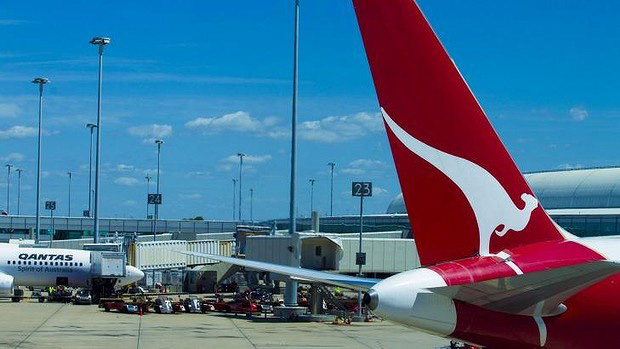Qantas has reported a lower than expected full-year underlying loss before tax of $646 million, but booked a statutory loss of $2.8 billion as a result of hefty restructuring charges and writedowns to its fleet.
The airline has decided to hold on to its frequent flyer program, as expected, but will form a new holding company that will allow its international business to participate in future consolidation opportunities.
“There is no doubt today’s numbers are confronting, but they represent the year that was past,” Qantas chief executive Alan Joyce said.
“We have now come through the worst. There is a clear and significant easing of both international and domestic capacity growth.”
Analysts had expected the airline to report an underlying pre-tax loss of around $750 million but had not expected the airline would take such heavy write-downs on its fleet.
Mr Joyce said Qantas was expected to return to an underlying profit before tax in the first half of the financial year, subject to factors outside its control. The airline expects international capacity growth of 2.4 per cent in the first half and domestic growth of 1 per cent.
Qantas’s cost savings, the lack of a carbon tax, steady fuel prices and reduced depreciation charges will help contribute to a better result in the first half, the airline said. Unit costs fell by 3 per cent last year, including 4 per cent in the second half.
As part of its structural review, Qantas has ruled out establishing any new Jetstar ventures while the company is focused on its transformation. However, the stalled Jetstar Hong Kong venture is still expected to proceed as planned, provided it can obtain regulatory approvals.
Qantas has taken a $2.6 billion writedown to its international fleet, due to the historic cost of aircraft it had purchased at an average exchange rate from Australian dollars to US dollars of 68 US cents. Following the writedown, the carrying value of the fleet will be more reflective of the current market value, and depreciation charges will be reduced by $200 million a year, the company said.
Divisionally, Qantas Domestic reported underlying earnings before interest and tax of $30 million, down from $365 million a year earlier, as a result of the damaging capacity war with Virgin Australia Holdings.
Qantas International reported an EBIT loss of $497 million, compared with a loss of $246 million in the prior year. The Jetstar Group reported an EBIT loss of $116 million, down from a profit of $138 million a year earlier, but the Australian domestic portion of the business remain profitable.
The airline’s highest earner, as expected, was its loyalty division which reported EBIT of $286 million, up from $260 million the prior year.

















